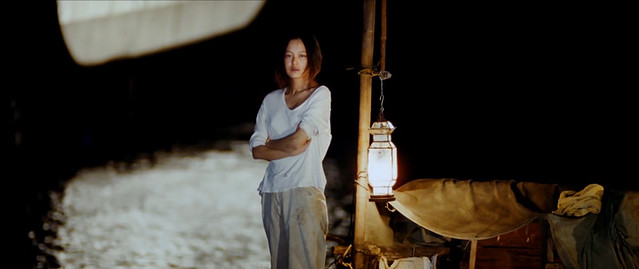
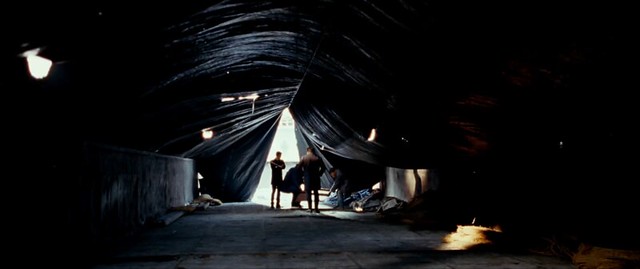
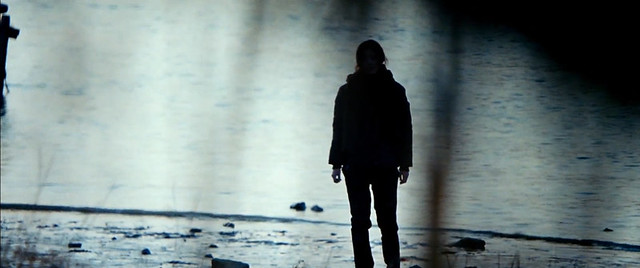
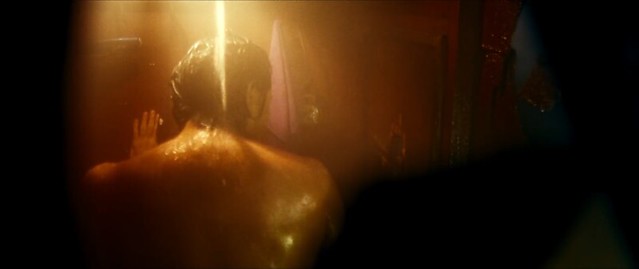
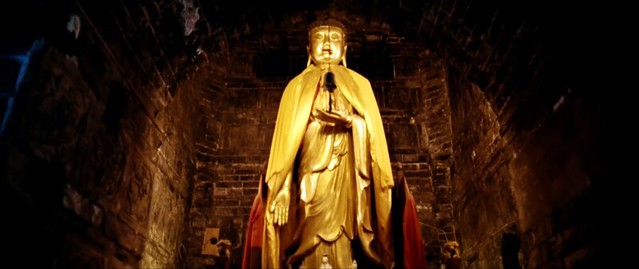
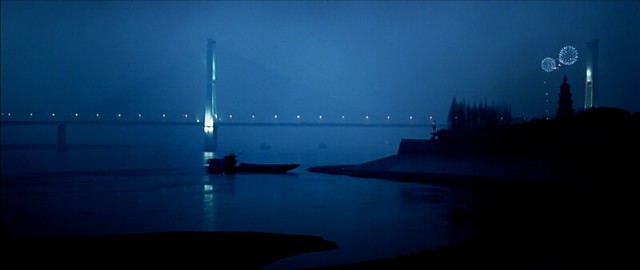

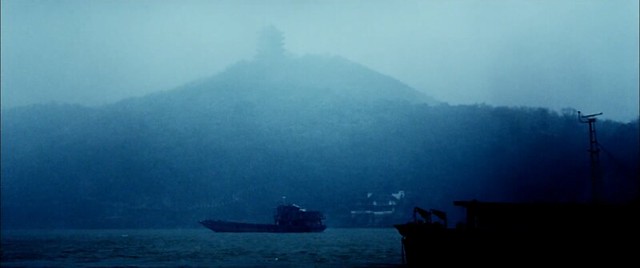
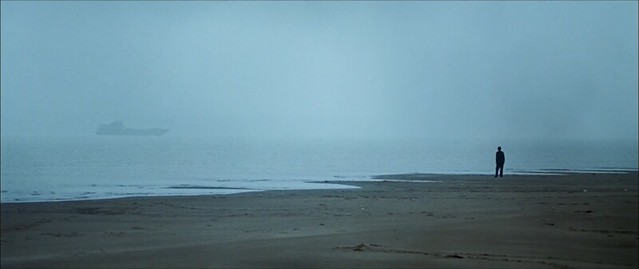
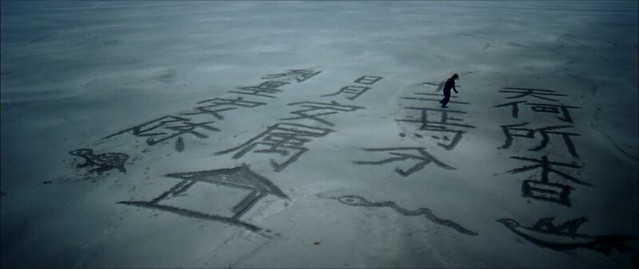
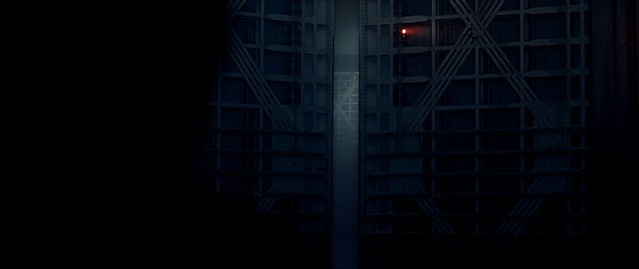
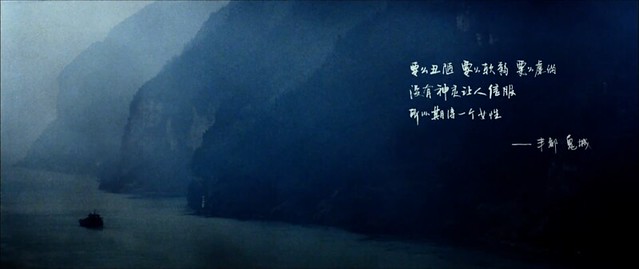
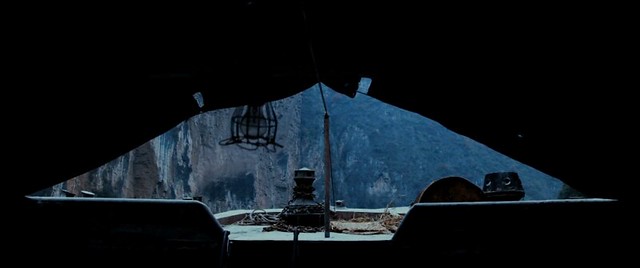
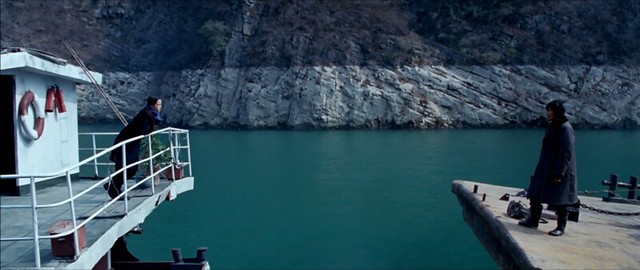
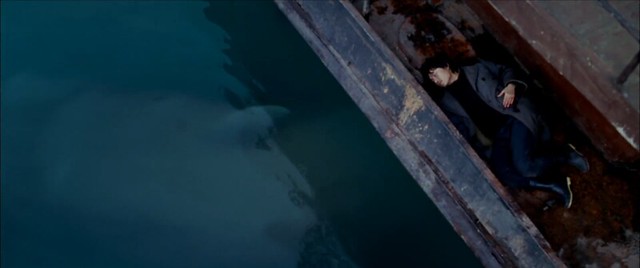

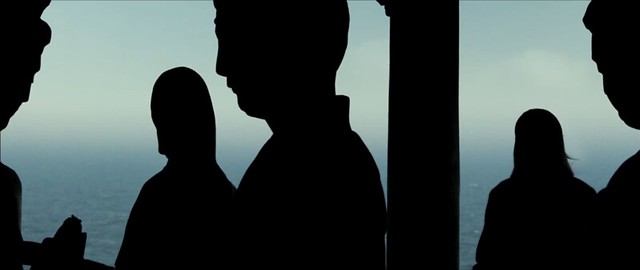
Yang Chao's Crosscurrent is an ambitious undertaking- he tries to show China's changing times up through the Yangtze River, both literally and in metaphysical sense, on a small cargo boat. And it's a glorious one.
Gao Chun (Qin Hao), just lost his father and as the tradition calls it, he needs to keep a black fish caught in the river in an urn until it expires naturally, so he can set his father's soul free. But he also inherited his father's tattered small cargo boat, a broad headed hunk of metal all rusted blue and red with age. Hired by some hotshot shady businessman, he is tasked to carry some unseen illegal cargo up the river. With an old man and an impatient young deck hand, and narrated by a diary found inside the boat -poems on each port Chun visits, he embarks on a long metaphysical journey through waterways, from Shanghai all the way to the source of the river near Tibet.
Chun lays his eyes on beautiful An Lu (Xin Zhilei), first as a prostitute on a floating riverboat in Shanghai, but she appears on every port Chun's boat docks along the river, waiting for him. Sometimes they meet, sometimes they miss each other, but without fail, she is there on the next port, reappearing again and again in a different form or another. An Lu in Mandarin is safe road/inner path, therefore the presence of An Lu serves as a nature spirit/old China left at a port as the ship sails.
As we go up the river, we are presented with China old and new - ruins of flooded towns, pagodas on top of the mountains, natural beauty of the waterways contrasting with ultra modern bridges and gigantic steel walls of Three Gorges Dam. Tears roll down on Chun's face when he observes the wonders of human ingenuity of the dam and when he encounters An Lu for the last time, indiscriminately.
Yang's approach might be too broad and can be seen as too arty farty and pretentious as the film tackles grand themes like the country's identity and its past and present in a poetic and spiritual way. And it many ways it is. But who cares. Mark Lee Ping Bin's cinematography is insanely gorgeous here.